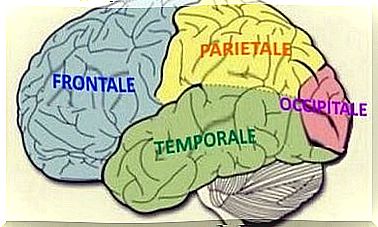Depressed Partner: How To Behave

Living with someone with depression is difficult. So much so that the weight of this burden also affects the mental health of the person who bears it. There is no denying it: being next to your depressed partner is a real challenge.
If you live with the depressed person or are simply attached to them, you will be exposed to numerous risk factors. It can also happen that you internalize and show the symptoms of your depressed partner, feeling guilty about what happens.
This highlights the “family” nature of depression, which is capable of having a significant impact on the life of the relatives and partner of the affected person. In this article, we look at what it means to have a partner with depression.

How to live with the depressed partner?
Within a relationship, practical changes must somehow take place alongside the development of a new self.
This new development allows both the person with depression and their partner to move forward in their life. As for the adaptation to the partner’s depression, experts believe that there are several stages. These would be:
- Adaptation.
- Recovery.
- Get a new perspective.
These phases together could foster a new perspective that integrates depression into a couple’s life. It is about finding a balance in which to show concern and love, while maintaining the right emotional distance and limiting responsibilities.
Taking care of the depressed partner
Having a lifelong bond with someone with depression is complicated. It is a psychosocial and cyclical process that those who care for it choose to undergo. This process is not static and it often causes us to need outside help.
In the case of couples, couples therapy can be useful in the early stages to help the person with depression and their partner understand what is happening and make sense of interpersonal changes. It can also be useful for understanding and anticipating new family dynamics as they arise.
Addressing the stigma
Addressing the stigma associated with depression is critical to managing structural barriers, both real and perceived.
The search for professional help, both from the person with depression and from the caregiver, must be normalized to cope with this disorder.
Stigma often prevents depressed people from seeking help. That is why continuing to address this problem until it is eradicated is so important. In this sense, the partner or carer of the depressed person can be helped to “overcome the challenges”.
This may prompt them to turn to a professional for help, both for themselves and for those suffering from depression.
Self-compassion and self-care to help the depressed partner
Caring for a depressed person needs to achieve a state of self-compassion through self-care.
This can help you accept your partner’s illness and take care of your emotional needs as they progress.
At the same time, it will be easier to accept new challenges in life, as it is to take care of a partner or family member who is suffering from depression.

The importance of awareness
Mindfulness, which includes self-compassion training, has been shown in several studies to be beneficial for those who have ties to people with depression.
Mindfulness can greatly help people living with a partner with depression. Primarily because it encourages progress towards a feeling of security about their helping role.
Conclusions
There is a clear need for further research on the subject. However, the conclusion we can draw at the present time is that it is essential for those caring for a depressed person to be aware of their psychological needs, as well as the support that their environment can provide. Of course, isolating yourself doesn’t help either you or your partner.








